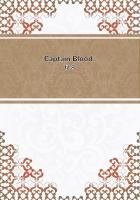"Did he strike you as a man who was in fear of heath?""No, he didn't," said the witness for the third time. "He seemed happy enough. I never thought for one moment that he was dead until I heard how his body had been found in the packing case."The Coroner asked all manner of questions, and so did Inspector Date; but all attempts to incriminate Quass were vain. He was bluff and straightforward, and told - so far as could be judged -everything he knew. There was nothing for it but to dismiss him, and Eliza Flight was called as the last witness.
She also proved to be the most important, as she knew several things which she had not told to her master, or to the reporters, or even to the police. On being asked why she had kept silence, she said that her desire was to obtain any reward that might be offered; but as she had heard that there would be no reward, she was willing to tell what she knew. It was an important piece of evidence.
The girl stated that Bolton had retired to bed at eight on the ground floor, and the bedroom had a window - as marked in the plan - which looked on to the river a stone-throw distant. At nine or a trifle later witness went out to have a few words with her lover. In the darkness she saw that the window was open and that Bolton was talking to an old woman muffled in a shawl. She could not see the woman's face, nor judge of her stature, as she was stooping down to listen to Bolton. Witness did not take much notice, as she was in a hurry to see her lover. When she returned past the window at ten o'clock it was closed and the light was extinguished, so she thought that Mr. Bolton was asleep.
"But, to tell the truth," said Eliza Flight, "I never thought anything of the matter at all. It was only after the murder that I saw how important it was I should remember everything.""And you have?"
"Yes, sir," said the girl, honestly enough. "I have told you everything that happened on that night. Next Morning - " She hesitated.
"Well, what about next morning?"
"Mr. Bolton had locked his door. I know that, because a few minutes after eight on the night before, not knowing he had retired. I tried to enter the room and make ready the bed for the night. He sang out through the door - which was locked, for I tried it - that he was in bed. That was a lie also, as after nine I saw him talking to the woman at the window.""You previously said an old woman," said the Coroner, referring to his notes. "How do you know she was old?""I can't say if she was old or young," said the witness candidly;"it's only a manner of speaking. She had a dark shawl over her head and a dark dress. I couldn't say if she was old or young, fair or dark, stout or lean, tall or short. The night was dark."The Coroner referred to the plan.
"There is a gas-lamp near the window of the bedroom. Did you not see her in that light?""Oh, yes, sir; but just for a moment. I took very little notice.
Had I known that the gentleman was to be murdered, I should have taken a great deal of notice.""Well, about this locked door?"
"It was locked over-night, sir, but when I went next morning, it was not locked. I knocked and knocked, but could get no answer.
As it was eleven, I thought the gentleman was sleeping very long, so I tried to open the door. It was not locked, as I say - but,"added witness with emphasis, "the window was snibbed and the blind was down.""That is natural enough," said the Coroner. "Mr: Bolton, after his interview with the woman, would of course snib the window, and pull down the blind. When he went away next morning he would unlock the door.""Begging your pardon, sir, but, as we know, he didn't go away next morning, being in the packing case, nailed down."The Coroner could have kicked himself for the very natural mistake he had made, for he saw a derisive grin on the faces around him, and particularly on that of Inspector Date.
"Then the assassin must have gone out by the door," he said weakly.
"Then I don't know how he got out," cried Eliza Flight, "for Iwas up at six and the front and back doors of the hotel were locked. And after six I was about in passages and rooms doing my work, and master and missus and others were all over the place.
How could the murderer walk out, sir, without some of us seeing him?""Perhaps you did, and took no notice?"
"Oh, sir, if a stranger was around we should all have taken notice."This concluded the evidence, which was meagre enough. Widow Anne was indeed recalled to see if Miss Flight could identify her as the woman who, had been talking to Bolton, but witness failed to recognize her, and the widow herself proved, by means of three friends, that she had been imbibing gin at home on the night and at the hour in question. Also, there was no evidence to connect this unknown woman with the murder, and no sound - according to the unanimous testimony of the inmates of the Sailor's Rest - had been heard in the bedroom of Bolton. Yet, as the Coroner observed, there must have been some knocking and hammering and ripping going on. But of this nothing could be proved, and although several witnesses were examined again, not one could throw light on the mystery. Under these circumstances the jury could only bring in a verdict of wilful murder against some person or persons unknown, which was done. And it may be mentioned that the cord with which Bolton had been strangled was identified by the landlord and the chamber-maid as belonging to the blind of the bedroom window.
"Well," said Hope, when the inquest was over, "so nothing can be proved against anyone. What is to be done next?""I'll tell you after I have seen Random," said the Professor curtly.















